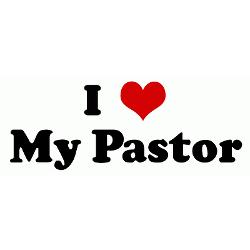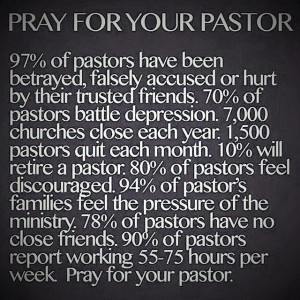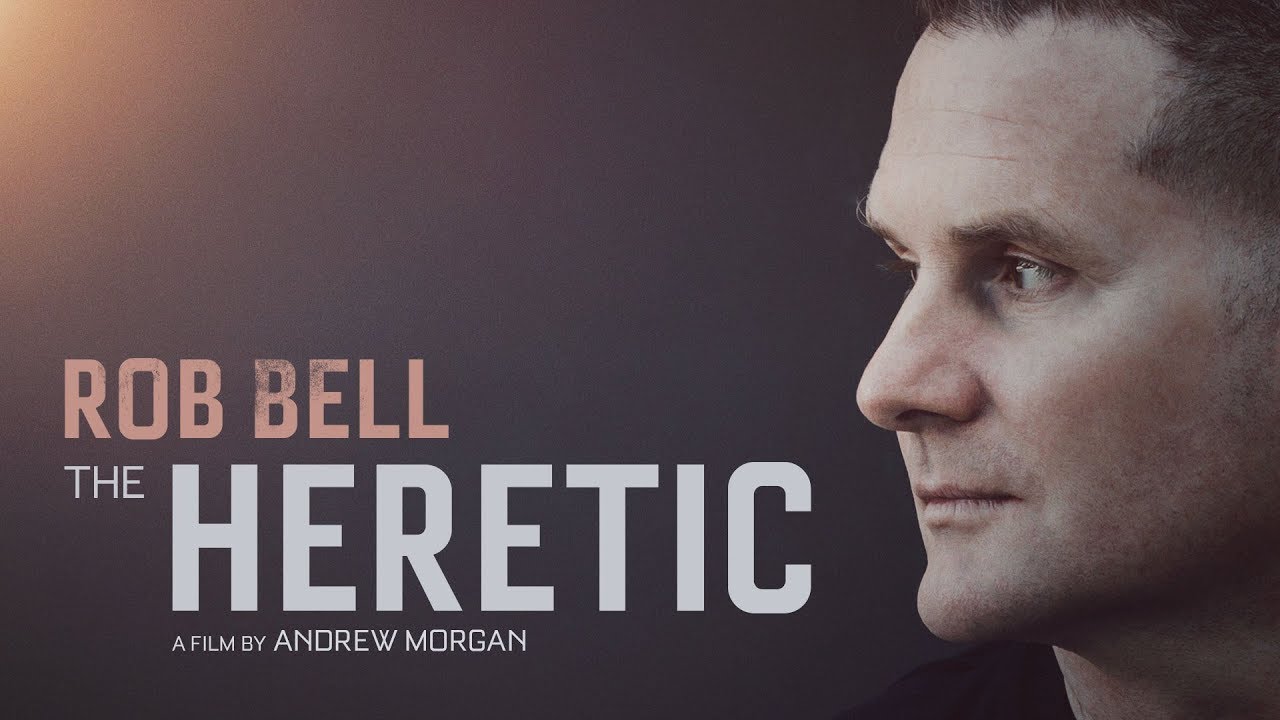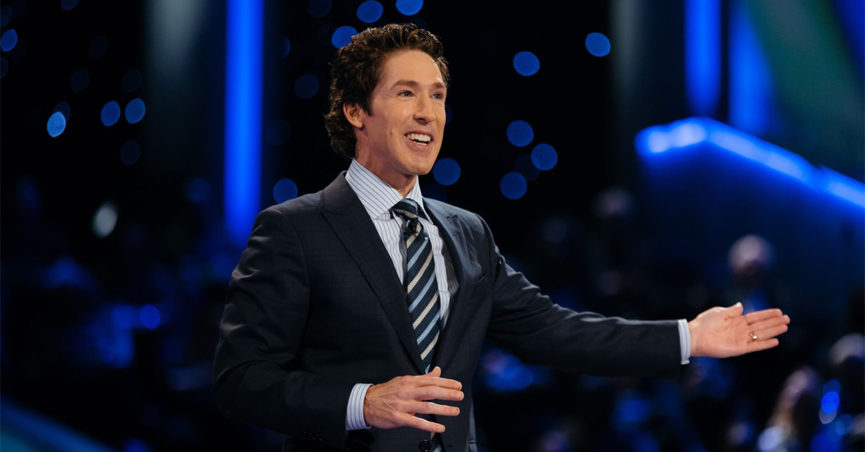The Problem I Have With “My Pastor”

“Who’s your pastor?”
It’s a question you have probably heard more than a few times if you tend to hang out in church circles. As a pastor myself I know the challenges that can come from people who look to you as “my pastor.”
But in the New Testament things looked a little different…
In the early church you don’t really see the early Christians referring to a “pastor” in the possessive. In fact when Paul heard that people were identifying with single individual leaders (1 Cor. 1:10-14) he called it out even to the point of refraining from baptizing people so people couldn’t boast, “Well Paul baptized me”
These days church congregations tend to be singularly identified with a single pastor or pastor couple but it wasn’t so for those churches first mentioned in the New Testament. Interesting enough Paul the Apostle was able to write 2 letters, 29 chapters, to the church in Corinth and we still have no idea who the senior pastor was!
Incredible! How was any Christian in Corinth to know who was “my pastor”?
In fact none of Paul’s church letters would help anyone in those congregations figure out who “my pastor” was.
As a mental exercise could you write a chapters long letter to your church without mentioning your senior pastor a single time?
I didn’t think so…
That’s not to say there are not leaders in the church. Ephesians 4:11 notes that Apostles, Prophets, Teachers, Evangelists, and Pastors are given to the church to help teach and encourage it’s people.
But then who is your Apostle? Prophet? Teacher?
I remember a wonderful lady Tammy and I knew in Colorado telling us how blessed she was by “my apostle”. When she said that phrase, “my apostle” a jolt went up my spine as I instantly pictured some weird, cult like relationship. Later though I wondered why “my apostle” was any more or less weird sounding than, “my pastor.”
Was it only because “my pastor” was the accepted vernacular of the modern church structure and “my apostle” wasn’t?
Was pastoring and leadership in the early church just a bit more pluralistic and diverse?
Just asking…

Pastor Burnout
There is a meme making it’s way around Facebook showing some frightfully shocking statistics associated with pastors:
* 70% of pastors battle depression
* 1,500 pastors quit each month
* only 10% of pastors will retire as a pastor
* 94% of pastor’s families feel the pressure of ministry
* 78% of pastors have no close friends
* 97% have been falsely accused or betrayed by a trusted friend
Although I don’t have proof for the statistics of this meme, my years in church leadership circles would convince me these numbers wouldn’t be far off.
A few years ago I was invited to play cards with an ex-pastor friend of mine. As I looked around the table and got to know some of the guys I came to realize they were all former pastors who had either folded their churches or moved on to other professional fields. I leaned over to my friend,
“What is this, an ex-pastor rehab group?”
He smiled.
The commonality for many former pastors is a desire to just be themselves. To have friends not followers. For their families to be real, flaws and all, and not held up as ornamental examples. To not run themselves ragged in order to prove to the congregation they were worth the salary they were being paid.
I once asked a pastor at a leaders gathering who had just rattled his heavy church schedule responsibilities off to me what he had as a hobby, something he just enjoyed doing besides his job. He shook his head and and said he wished he had time for a hobby.
Sounded like a future candidate for the card game…
Most former pastors I meet didn’t mind the leadership and teaching elements associated with pastoring. No…
What eventually wore them down was the sheer weight associated with being “My Pastor”!
The expectations of being spiritually owned by someone other than Christ.
The meme going around Facebook quotes these statistics and then appeals for people to pray for “your pastor”.
Let’s pray yes! But then let’s also work to change the church system which produces these shocking statistics to begin with.
2 comments
Comments are closed.
Related
-
Jesus Movement / Movie Review / Uncategorized
Rob Bell & “The Heretic”
By Steve
-
Uncategorized
Betrayal & Grace: When Doctor Who Gets All “Jesus-ee”
By Steve -
Uncategorized
When Tragedy Strikes!
By Steve -
Uncategorized
Weekend Update: Doctor Who 50th Anniversary Episode
By Steve -
Uncategorized
The Divine Magician: or How To Make Real Life Appear By Smashing The “Sacred Object”
By Steve -
Uncategorized
I’m Coming Out Of The Closet…Worship Wise That Is!
By Steve -
Uncategorized
The Scapegoating of Joel Osteen
By Steve
-
Uncategorized
Book Review: “It’s All About Jesus: What They Never Told You In Church”
By Steve -
Uncategorized
World Cup FAQ
By Steve -
Uncategorized
Logo: Help Needed!
By Steve

Because I call the doctor I see, “my doctor” doesn’t mean I think I own him. It does mean I believe he is paying some attention to my health, while I pay him to do so and that when he suggests a course of action I follow his advice. The difference between pastor and doctor is that the doctor has a lot more respect, is paid a lot more and no one demands his wife and children toe a line. We are less voyeuristic unless his malpractice makes the headlines. The displeased sue him, the displeased in churches, fire the pastor after slandering him into the next country. The odd thing is that people believe a tithe, or just attendance entitles them to expect the pastor jumps hoops, is always “spiritual”, available and eternally patient with their immaturity.
There are scriptural implications that make it confusing for some such as “obey them that have the rule over you for they watch for your souls” implying a relationship in which one is a “shepherd” of sorts. Shepherd the flock? What does that mean really? I grew up in the era where the parson stopped by homes on routine parish visits establishing a relationship of care and trust and in it engendering some lifetime loyalty and good will. But perhaps that was just an era of general neighborliness. We felt loyal to the man that married us, christened the babies and buried us. Now its a free for all in communities and everyone seems to be out for themselves first and foremost, “me and mine”
Thanks for the comment Prodigal. I concede I also have had “my doctor”, “my professor”, and “my lawyer” but it is probably fair to say they don’t carry the “possessive” qualities with the same expectations and hence don’t have the shocking statistics of depression and burnout. You note your loyalty to the man who marries, christens babies, and buries. Very commendable but my point is why has the system created a position where a pastor is expected to do these responsibilities in the first place? Where in the Bible do you see a church pastor performing marriages, funerals, or christenings? I’m not suggesting they can’t perform these functions but there should be NO expectation to perform these functions. I’m suggesting it is the sheer onslaught of extra biblical expectations that create the dire situations to begin with.